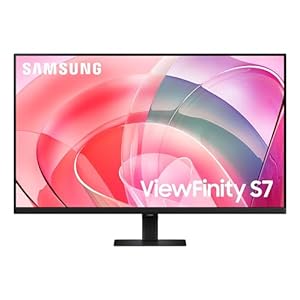Astronauts on board the ISS took longer to carry out sure duties, elevating concern over the results spaceflight has on the human mind.
A brand new research is shedding gentle on the lesser recognized results of area on cognitive habits and the way astronauts’ slower efficiency might impression our capability to embark on lengthy length journeys by the cosmos.
A crew of researchers from NASA’s Behavioral Well being and Efficiency Laboratory examined the habits of 25 astronauts on board the Worldwide Area Station (ISS), discovering that the astronauts took longer to finish sure duties that should do with processing pace, working reminiscence, and a spotlight throughout their keep in area. The findings, detailed in a study printed in Frontiers in Physiology, increase issues over the impression future missions to the Moon and Mars might have on the brains of astronauts.
For the research, the astronauts got 10 checks to finish on Earth, as soon as forward of their launch to area and twice after their return again dwelling (10 days after which 30 days after touchdown on Earth). The astronauts additionally needed to full the identical checks on board the area station, each early on and in direction of the top of the six-month length of their missions. For every of the checks, the researchers measured pace and accuracy, evaluating the efficiency of the astronauts at these 5 cut-off dates.
The outcomes confirmed that astronauts responded to duties assessing processing pace, working reminiscence, and a spotlight slower in area than they did on Earth, however they maintained the identical stage of accuracy. Moreover, the adjustments within the astronauts’ cognitive habits didn’t persist after their return to Earth. “Dwelling and dealing in area was not related to widespread cognitive impairment that will be suggestive of serious mind injury,” Sheena Dev, a researcher at NASA’s Behavioral Well being and Efficiency Laboratory and lead creator of the brand new research, mentioned in a statement.
That’s excellent news for the astronauts following their return to Earth, however it does have implications for his or her time in area. Area has excessive stressors that the human physique doesn’t expertise on Earth, akin to radiation, microgravity, in addition to the calls for of the mission itself, all of which may have an effect on the best way our brains perform.
“Even on Earth, processing pace, working reminiscence, and a spotlight are cognitive domains that may present momentary adjustments when a person is beneath stress. Different domains, akin to reminiscence, are much less susceptible to stressors,” Dev mentioned. “For instance, should you occur to have a very busy day however couldn’t get a lot sleep the night time earlier than, you may really feel prefer it’s arduous to concentrate or that you simply want extra time to finish duties.”
Area can take a critical toll on the human physique. Earlier analysis has proven that lengthy length spaceflight can lead to the loss of bone density and the onset of muscle atrophy, along with detrimental results on the heart, eyes, spine, cells, and general physical fitness.
In relation to the mind, much less analysis has been completed on astronauts’ cognitive habits however there’s some indication that area can have an effect on the human mind as effectively. A study printed in 2020 confirmed that long-duration spaceflight might basically alter the quantity of cerebrospinal fluid within the mind, with the elevated quantity of fluid remaining for a full yr after astronauts returned from area. Analysis from 2017 additionally confirmed that prolonged stints in area caused gray matter to both increase and decrease in different regions of the brain.
As NASA prepares to return astronauts to the Moon as a part of its Artemis program, the plan is to ascertain a sustainable human presence on the lunar floor, and to journey to Mars from there. Though extra analysis must be completed on the results of spaceflight on the human physique, issues aren’t wanting good to date, and area companies have to provide you with methods to mitigate the dangerous draw back area journey can have on their astronauts.
Trending Merchandise

Samsung 24” FT45 Series FHD 1080p Computer Monitor, 75Hz, IPS Panel, HDMI, DisplayPort, USB Hub, Ultra Thin Bezels, Ergonomic Design, Height Adjustable Stand, 3 Year Warranty, LF24T454FQNXGO, Black

KEDIERS ATX PC Case,6 PWM ARGB Fans Pre-Installed,360MM RAD Support,Gaming 270° Full View Tempered Glass Mid Tower Pure White ATX Computer Case,C690

ASUS RT-AX88U PRO AX6000 Dual Band WiFi 6 Router, WPA3, Parental Control, Adaptive QoS, Port Forwarding, WAN aggregation, lifetime internet security and AiMesh support, Dual 2.5G Port

Wireless Keyboard and Mouse Combo, MARVO 2.4G Ergonomic Wireless Computer Keyboard with Phone Tablet Holder, Silent Mouse with 6 Button, Compatible with MacBook, Windows (Black)

Acer KB272 EBI 27″ IPS Full HD (1920 x 1080) Zero-Frame Gaming Office Monitor | AMD FreeSync Technology | Up to 100Hz Refresh | 1ms (VRB) | Low Blue Light | Tilt | HDMI & VGA Ports,Black

Lenovo Ideapad Laptop Touchscreen 15.6″ FHD, Intel Core i3-1215U 6-Core, 24GB RAM, 1TB SSD, Webcam, Bluetooth, Wi-Fi6, SD Card Reader, Windows 11, Grey, GM Accessories

Acer SH242Y Ebmihx 23.8″ FHD 1920×1080 Home Office Ultra-Thin IPS Computer Monitor AMD FreeSync 100Hz Zero Frame Height/Swivel/Tilt Adjustable Stand Built-in Speakers HDMI 1.4 & VGA Port

Acer SB242Y EBI 23.8″ Full HD (1920 x 1080) IPS Zero-Frame Gaming Office Monitor | AMD FreeSync Technology Ultra-Thin Stylish Design 100Hz 1ms (VRB) Low Blue Light Tilt HDMI & VGA Ports







